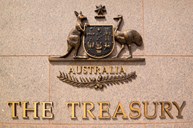Federal Election 2025: What Tax Changes to Expect Under Labor or the Coalition
Originally published:
Apr 2025
🔎 Note: Labor won the 2025 Federal Election. The following article reflects both parties’ proposed tax policies at the time of the campaign, with updates to reflect legislated changes and expected implementation timelines.
As the 2025 Federal Election approached, both the Labor Government and the Coalition unveiled distinct tax policies aimed at addressing cost-of-living pressures and economic growth. Understanding these proposals helped Australians anticipate potential changes to their financial landscape.
Labor legislated a series of tax reforms set to commence from 1 July 2025, focusing on providing relief to low and middle-income earners.
The reform will allow taxpayers to choose to claim a $1,000 instant tax deduction instead of claiming individual work-related expenses. It is intended to save time and money for taxpayers, who won’t – in theory – need to keep receipts/invoices to substantiate the $1,000 deduction. Of course, in practice, many taxpayers will still need to keep full substantiation as they won’t necessarily know whether their work-related expenses are more or less than $1,000 until they get to the end of the tax year.
If you wish to claim more than $1,000 in work-related expenses, you won’t be able to claim the automatic deduction. You will need to follow the current rules, which involve full substantiation of most expenses.
The ATO will not need to audit taxpayers who claim the standard deduction. This will enable them to focus on higher tax claims (including work-related deductions over $1,000), which is sure to increase the pressure on taxpayers to make sure they have the necessary records to support their claim.
Currently taxpayers can claim up to $300 in work-related expenses without substantiation. If they exceed the $300, they need full substantiation for all their expenses, not just the excess over $300. The $300 limit doesn't apply to claims for car expenses, meal allowance, award transport payments allowance, or travel allowance expenses. Taxpayers do need to prove how they spent the money and how they calculated the claims.
It remains to be seen how Labor implements this proposal; will it be a blanket exception for all work-related expenses of less than $1,000 or will it simply piggy-back on the existing $300 exception (raising the threshold by $700), complete with its exclusions and checks?
And note – this is a standard deduction, not a simple refund of $1,000. The amount you get back depends on your tax rate. For example, someone who pays tax at 30% will get $300 (30% x $1,000) back.
Taxpayers will need to complete a tax return to claim the deduction which means that it will be July 2027 at the earliest before they see any benefit.
The Coalition proposed a different approach to tax relief, with measures aimed at certain groups.
This “cost of living tax offset” was very similar to the now abolished Low and Middle Income Tax Offset (LMITO). Those earning between $48,000 and $104,000 would benefit from the full offset of $1,200. Taxpayers who earn below $48,000 would receive a smaller offset, as would those who earn above $104,000 and up to $144,000.
The offset would be paid as a lump sum at tax time next year, meaning that taxpayers need to lodge a tax return to get it.
Eligibility would be limited to new builds and places of principal residence, and interest could only be deducted on the first $650,000 of the loan. Single people earning up to $175,000 and joint applicants with a combined income of $250,000 would be covered.
The exact benefit would be based on the person or couple’s incomes and tax liability, but the Coalition suggested an individual in the 37% tax bracket could receive a maximum deduction of $14,500 a year.
The scheme was criticised by housing experts; they said that the effect of a government subsidy for housing costs like this would be to push house prices up even further.
These tax changes could impact your take-home pay, your tax return, and your overall financial strategy. Whether it was the broader structural reforms proposed by Labor or the more targeted cost-of-living relief from the Coalition, each plan reflected different priorities for managing Australia’s economy post-election.
With tax rules changing and new deductions on the horizon, it’s more important than ever to get expert advice. H&R Block Tax Experts can help you navigate these updates, understand what they mean for your personal situation, and make sure you’re getting every dollar you’re entitled to.
Updated May 2025
As the 2025 Federal Election approached, both the Labor Government and the Coalition unveiled distinct tax policies aimed at addressing cost-of-living pressures and economic growth. Understanding these proposals helped Australians anticipate potential changes to their financial landscape.
Labor’s Tax Changes for 2025
Labor legislated a series of tax reforms set to commence from 1 July 2025, focusing on providing relief to low and middle-income earners.-
Standard $1,000 tax deduction:
The reform will allow taxpayers to choose to claim a $1,000 instant tax deduction instead of claiming individual work-related expenses. It is intended to save time and money for taxpayers, who won’t – in theory – need to keep receipts/invoices to substantiate the $1,000 deduction. Of course, in practice, many taxpayers will still need to keep full substantiation as they won’t necessarily know whether their work-related expenses are more or less than $1,000 until they get to the end of the tax year.
If you wish to claim more than $1,000 in work-related expenses, you won’t be able to claim the automatic deduction. You will need to follow the current rules, which involve full substantiation of most expenses.
The ATO will not need to audit taxpayers who claim the standard deduction. This will enable them to focus on higher tax claims (including work-related deductions over $1,000), which is sure to increase the pressure on taxpayers to make sure they have the necessary records to support their claim.
Currently taxpayers can claim up to $300 in work-related expenses without substantiation. If they exceed the $300, they need full substantiation for all their expenses, not just the excess over $300. The $300 limit doesn't apply to claims for car expenses, meal allowance, award transport payments allowance, or travel allowance expenses. Taxpayers do need to prove how they spent the money and how they calculated the claims.
It remains to be seen how Labor implements this proposal; will it be a blanket exception for all work-related expenses of less than $1,000 or will it simply piggy-back on the existing $300 exception (raising the threshold by $700), complete with its exclusions and checks?
And note – this is a standard deduction, not a simple refund of $1,000. The amount you get back depends on your tax rate. For example, someone who pays tax at 30% will get $300 (30% x $1,000) back.
Taxpayers will need to complete a tax return to claim the deduction which means that it will be July 2027 at the earliest before they see any benefit.
-
Reduction in the bottom rate of income tax:
Coalition’s Tax Changes for 2025
The Coalition proposed a different approach to tax relief, with measures aimed at certain groups.-
One-off $1,200 tax offset:
This “cost of living tax offset” was very similar to the now abolished Low and Middle Income Tax Offset (LMITO). Those earning between $48,000 and $104,000 would benefit from the full offset of $1,200. Taxpayers who earn below $48,000 would receive a smaller offset, as would those who earn above $104,000 and up to $144,000.
The offset would be paid as a lump sum at tax time next year, meaning that taxpayers need to lodge a tax return to get it.
-
Mortgage interest tax deduction:
Eligibility would be limited to new builds and places of principal residence, and interest could only be deducted on the first $650,000 of the loan. Single people earning up to $175,000 and joint applicants with a combined income of $250,000 would be covered.
The exact benefit would be based on the person or couple’s incomes and tax liability, but the Coalition suggested an individual in the 37% tax bracket could receive a maximum deduction of $14,500 a year.
The scheme was criticised by housing experts; they said that the effect of a government subsidy for housing costs like this would be to push house prices up even further.
How Will This Affect You?
These tax changes could impact your take-home pay, your tax return, and your overall financial strategy. Whether it was the broader structural reforms proposed by Labor or the more targeted cost-of-living relief from the Coalition, each plan reflected different priorities for managing Australia’s economy post-election.With tax rules changing and new deductions on the horizon, it’s more important than ever to get expert advice. H&R Block Tax Experts can help you navigate these updates, understand what they mean for your personal situation, and make sure you’re getting every dollar you’re entitled to.
Updated May 2025

Still have questions?
We have the answers. Let us take care of you and your tax needs.
Share with your friends
Related Articles
Explore what Labor’s 2025 election win means for your tax. Learn about the $1,000 standard deduct...
3 min read
The ATO is cracking down on tax returns in 2025. See what’s on the ATO's hitlist, from work-relat...
4 min read
Discover key tax measures in the 2025 Australian Federal Budget, including tax cuts for individua...
4 min read
H&R Block has been named Australia’s top tax agent in Canstar Blue’s 2024 awards, earning five st...
5 min read




.png?width=55&height=48&ext=.png)
-1.svg)

